 Petzlover
Petzlover Machbagral is originated from United States but Traditional Siamese is originated from Thailand. Both Machbagral and Traditional Siamese are having almost same weight. Machbagral may live 5 years less than Traditional Siamese. Both Machbagral and Traditional Siamese has same litter size. Machbagral requires Low Maintenance. But Traditional Siamese requires Moderate Maintenance
Machbagral is originated from United States but Traditional Siamese is originated from Thailand. Both Machbagral and Traditional Siamese are having almost same weight. Machbagral may live 5 years less than Traditional Siamese. Both Machbagral and Traditional Siamese has same litter size. Machbagral requires Low Maintenance. But Traditional Siamese requires Moderate Maintenance
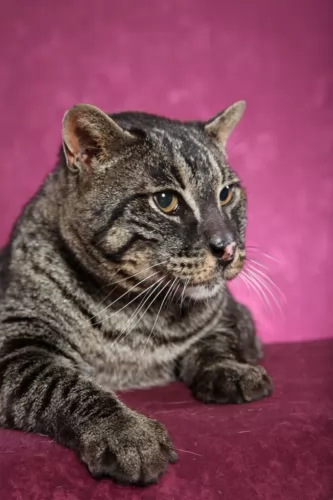 This is an experimental cat breed – a wildcat hybrid. It seems as though this cat was also developed in the United States like many of the other hybrid cats.
This is an experimental cat breed – a wildcat hybrid. It seems as though this cat was also developed in the United States like many of the other hybrid cats.
Also known as Bagral, Tthe Machbagral came about by crossing the wild Fishing cat – also known as the Asian Fishing cat and a Bengal cat or melanistic tabby spotted domestic cat.
Once again, humans wanted a cat that would look like a wild cat but that could be domesticated.
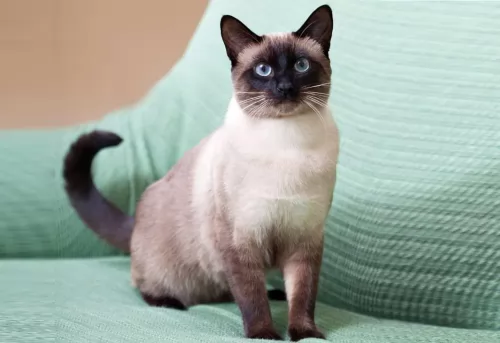 There are now three types of Siamese cats. The Traditional Siamese is said to be the original cat imported from Thailand.
There are now three types of Siamese cats. The Traditional Siamese is said to be the original cat imported from Thailand.
The Classic was the type that was common in the 50’s, 60’s and 70’s. The original Siamese cat became one of the most popular breeds in Europe and North America in the 19th century.
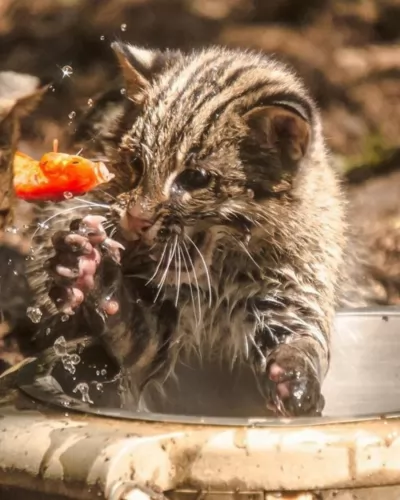 The Machbaral is a medium to large-sized cat and can weigh up to 7kg. It is described as a stocky cat. The head is large with fairly small ears. The fur of the Machbagral will be dense and medium length with a thick fluffy tail. The color is black with lighter tips.
The Machbaral is a medium to large-sized cat and can weigh up to 7kg. It is described as a stocky cat. The head is large with fairly small ears. The fur of the Machbagral will be dense and medium length with a thick fluffy tail. The color is black with lighter tips.
The Machbagral cat is very friendly and intelligent and like so many hybrid cats he loves playing in water. If you have an outside cage for him, it should have a small pool.
He is a cat that loves his human family and behaves much like a dog. You can teach this cat to walk on a leash.
You need to bear in mind that because of the wildness in the Machbagral, there will no doubt be some aggression. They can also be quite solitary by nature and may never adjust to being in a social setting. These cats are also not 100% predictable.
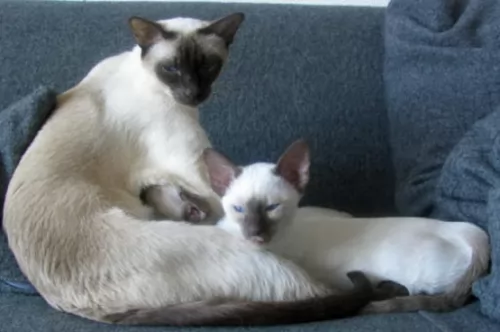 The Traditional Siamese cat is medium-sized, lean, and muscular and weighs between 3 and 6kg. The coat is short and he is considered a medium shedder.
The Traditional Siamese cat is medium-sized, lean, and muscular and weighs between 3 and 6kg. The coat is short and he is considered a medium shedder.
The kittens of these cats are born white and the coloring comes in over the next days and weeks. The head of the Traditional Siamese is well proportioned to its body size.
The medium size ears are slightly rounded at the tip and the eyes are large and bright blue in color.
The coat is short, sleek, and soft and accepted colors are cream with chocolate, brown, lilac, red, tortie or blue points.
The personality of the Traditional Siamese is loud, vocal, and demanding. These cats let you know precisely what they want and it is almost like having a human companion in the house.
They love to give their human owners lots of attention as well. They’re intelligent, curious, playful, and energetic.
The Traditional Siamese cat isn’t really recognized by the Cat Fanciers Association (CFA) anymore as the breed’s temperament has changed so much.
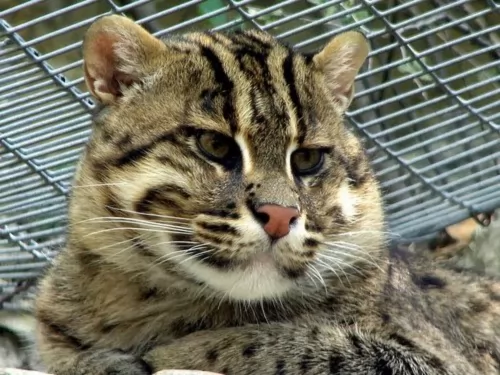 The Machbagral, just like some of the other hybrid cats there are, can be wonderful to own. But sadly these hybrids should be discouraged as pets.
The Machbagral, just like some of the other hybrid cats there are, can be wonderful to own. But sadly these hybrids should be discouraged as pets.
They can make wonderful pets no doubt, but there is always that unpredictable behavior with them.
There are so many cats in shelters today, many of them are hybrids because people had no idea that the wild side of the hybrid such as the Machbagral is always lurking there, ready to come out.
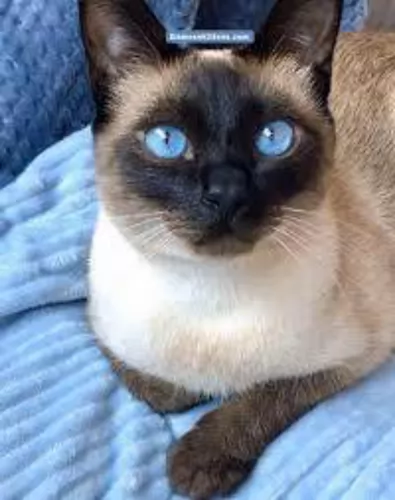 The Traditional Siamese cat is such an amazingly intelligent animal and sometimes they can become quite human.
The Traditional Siamese cat is such an amazingly intelligent animal and sometimes they can become quite human.
These are not your traditional cool, independent, sleep all day kind of felines and people liken them to having a dog as a pet. They love to play, and they are so active you could even put a leash on one and take it for a walk.
They are energetic, local, and lively. They are such affectionate cats too and they get on well with children and with other pets.
When you bring a Traditional Siamese cat into your life, it is like you are bringing in a human companion, except that the Traditional Siamese is far more amicable than many humans.
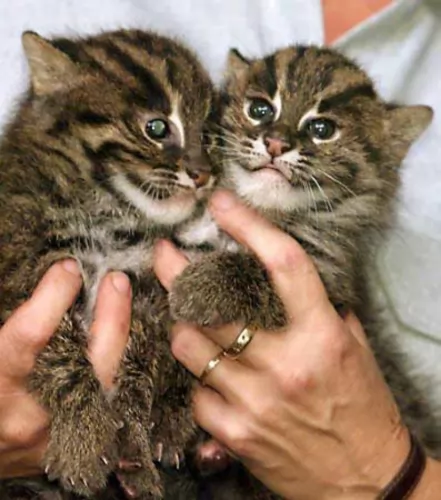 You need to know that interbreeding wild cats with domestic cats still has wildness in a cat.
You need to know that interbreeding wild cats with domestic cats still has wildness in a cat.
The truth is, there are behavioral complaints from owners of these hybrid cats.
No matter how wonderful the Machbagral seems to be as a pet, at some time or other he will display aggression and also failure to use a litter box.
These hybrids usually mark their territory by urination and spraying and often can’t learn to use a litter box. Unlike with a proper domestic cat, neutering or spaying a hybrid cat won’t really change their behavior of urinating inside your house.
Also, because hybrid cats such as the Machbagral are unnatural breeding, there can be health issues. One of the more common illnesses among hybrid cats include digestive issues, of which IBD is one. This is a bowel disease and it can cause chronic diarrhea with your cat.
Another medical issue is Hypertrophic Cardiomyopathy. Also, another concern is that while regular cat vaccines protect your regular cat from some deadly cat diseases, they may not be approved for use in hybrid cats, and if they are approved, they may not be effective.
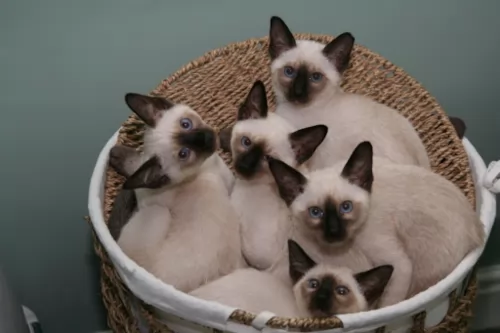 Avoid obesity. Siamese cats are prone to obesity and these slim cats can’t afford weight gain. Extra weight can put a whole lot of pressure on the cat’s joints and they can also develop other problems such as diabetes. The label of the commercial cat food you give your Traditional Siamese will indicate how much food your cat should get a day based on your cat’s weight.
Avoid obesity. Siamese cats are prone to obesity and these slim cats can’t afford weight gain. Extra weight can put a whole lot of pressure on the cat’s joints and they can also develop other problems such as diabetes. The label of the commercial cat food you give your Traditional Siamese will indicate how much food your cat should get a day based on your cat’s weight.
Diet plays a massive role in the health of a cat, and inferior cat foods can mean you spending more money at the vet because of digestive issues.
If you are in any kind of doubt as to what to feed your cat, rather speak to your vet about what and how much to feed him. Your cat is a carnivore and it is most important to feed your cat foods high in protein.
Take your cat to the vet whenever he is sick and also just for a general check-up. You want to make sure that your Traditional Siamese is free from any health problems as well as parasites.
Also, make sure your cat is always up to date with his vaccinations as there are some cat illnesses such as feline panleukopenia, also known as distemper, that can kill your cat.
It is always a good idea as well to spay or neuter your Siamese to prevent unwanted pregnancies.
If your Traditional Siamese has any health conditions, your vet can help provide you and your pet with a treatment program.
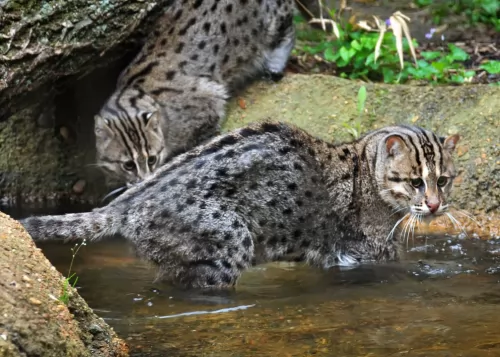 Most cat owners with basic cat care knowledge will be able to take care of their Machbagral. You could say that there is a little bit more specialized care with these hybrid cats as they will require an outside cage as they are cats with a wild side.
Most cat owners with basic cat care knowledge will be able to take care of their Machbagral. You could say that there is a little bit more specialized care with these hybrid cats as they will require an outside cage as they are cats with a wild side.
Feline hybrids are larger than domestic cats and can exhibit a wild temperament, so you have to bear in mind they require careful and different handling to a regular cat.
A diet of commercial pet food may not be sufficient for a hybrid such as the Machbagral and your vet may well be able to advise you on the feeding requirments of these hybrids.
Since cats are carnivorous, they will need to be fed food that is high in protein. You need to understand how to read labels on commercially manufactured cat foods and to avoid those that have more carbohydrates in them and less meat. Feeding you cat such a diet will ensure health issues later on.
Provide your pet with all the things needed to make him content as can be. Food and water bowls, paddling pool, toys, sleeping area. You want to surely invest in collar and tag as these cats often try to get away.
You want to make sure you have an outdoor enclosure for your Machbagral. These hybrids are indoor- and outdoor cats. Because they often don’t learn to use a litter box they need to be outside in an enclosure for some of the time. They are certainly not indoor cats.
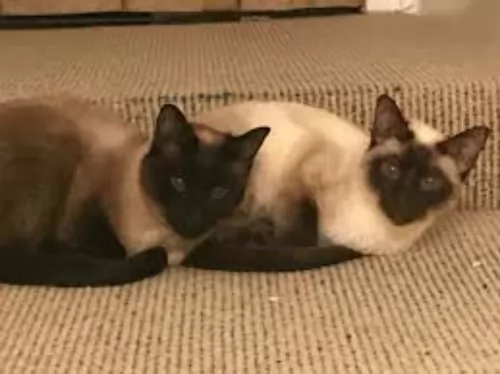 To care for your Traditional Siamese, you need to feed him a high protein diet. Always read the labels of the cat food you buy to ensure that the proteins included come from animal sources and not from plants.
To care for your Traditional Siamese, you need to feed him a high protein diet. Always read the labels of the cat food you buy to ensure that the proteins included come from animal sources and not from plants.
Brush your Traditional Siamese cat regularly. He has a short coat so once a week will be enough to keep it shiny and clean.
You can feed your cat and provide all he needs, but nothing will be more important to your cat than showing your love for him by spending lots of time with him and showering him with love.